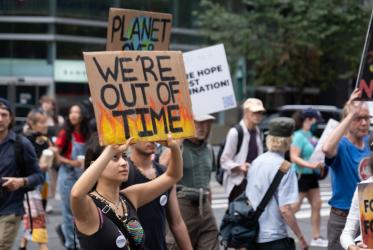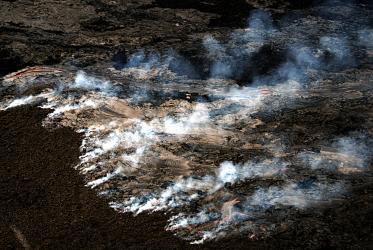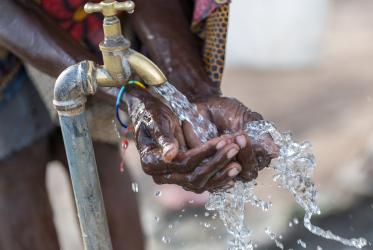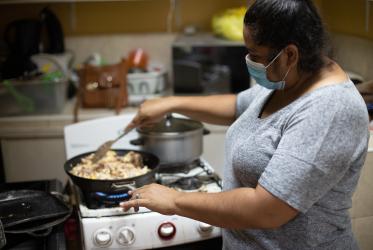Displaying 1 - 20 of 133
WCC Eco-School begins in Crete
15 November 2023
WCC among “movers and doers” at UN Climate Ambition Summit
20 September 2023
Churches march in New York City to declare no faith in fossil fuels
18 September 2023
WCC offers condolences in wake of wildfires in Hawaii
16 August 2023
New eco-theology book combines diverse views with best practices
10 January 2022
Protecting Ethiopia’s church forests
27 October 2021
South Sudanese Churches shelter populations displaced by floods
23 September 2021



















